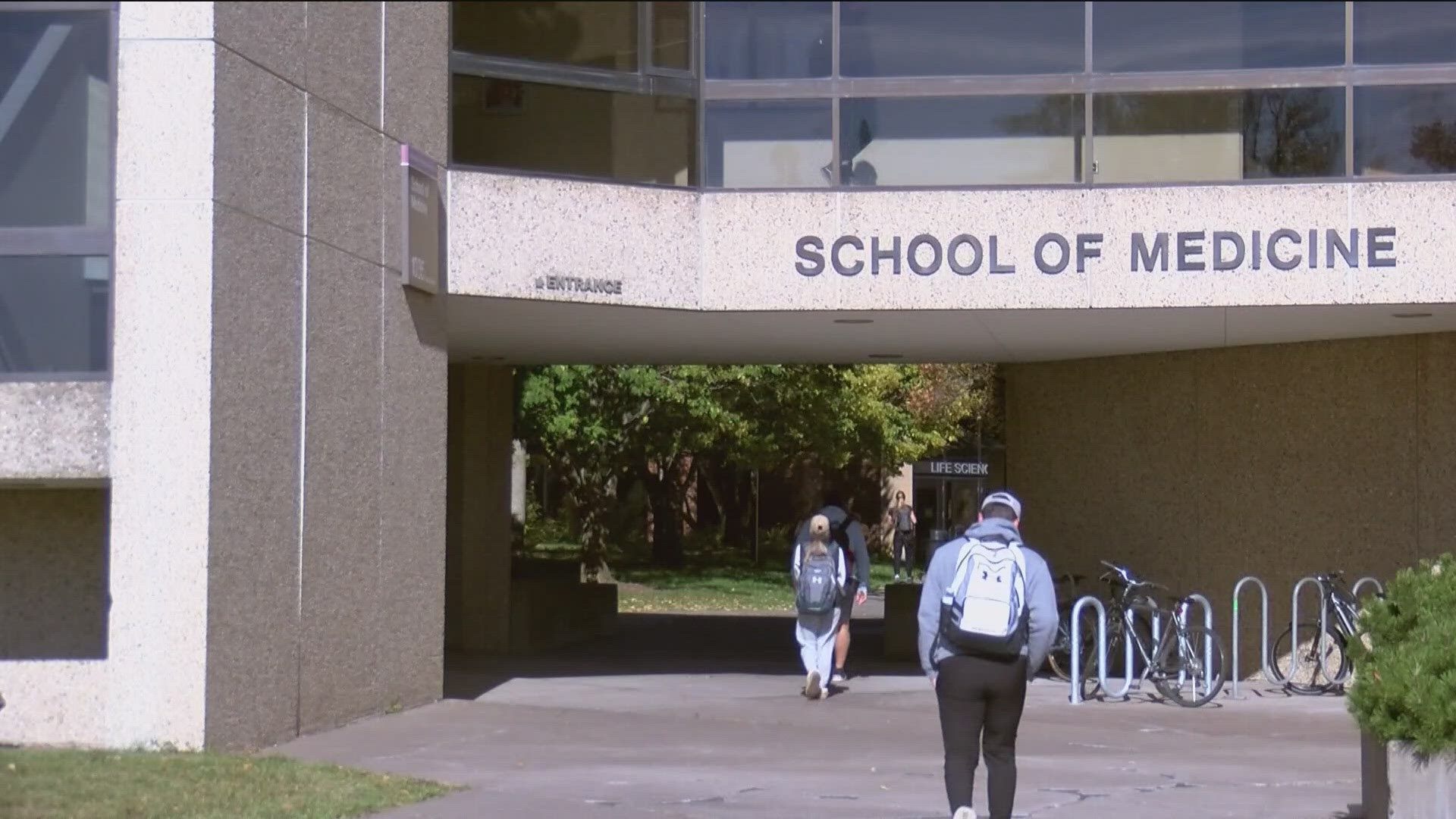MINNEAPOLIS — The University of Minnesota Medical School's Duluth campus will transition next fall from a two-year program into a full four-year program, in an effort to retain more doctors in rural and Indigenous communities across the state.
Currently, the Duluth campus enrolls 65 medical students, who train at Duluth for their first two years and then transfer to the Twin Cities campus for their last two years of clinical training. The class of students entering in the fall of 2025, however, will be the first to stay in Duluth all four years.
"They'll be Duluth students from start to finish," said Kevin Diebel, the regional dean of the University of Minnesota Medical School's Duluth campus. "What that will allow us to do, is to further reinforce the mission of the campus that it's always been -- which is to train individuals who have a sincere desire to address rural and Native American communities."
As the Duluth campus grows into a four-year program, the school is also eyeing a brand-new medical school building in downtown Duluth, at a location to be determined. The university has included the $22.5 million project on a 2026 capital planning request, with a proposal to the state legislature to cover two-thirds of the costs.
If approved, the healthcare systems Essentia Health and Aspirus St. Luke's have both offered to partner and provide space for the new medical school building.
This week, the Duluth City Council passed a resolution signaling support for the construction of the medical school building. Although council members were careful not to express a preference for either Essentia or Aspirus St. Luke's, it appears the project would be located somewhere in the downtown medical corridor.
"We've had a medical school in our community for 52 years, and we want to make sure it continues to provide all the benefits we get from that, and that we grow that," council member Arik Forsman said.
The expansion in Duluth is part of a larger effort by the University of Minnesota Medical School to grow its presence in Greater Minnesota. Next fall, the medical school will also partner with CentraCare for a new location in St. Cloud.
Between 24 new students in St. Cloud and the 65 students training for all four years in Duluth, the university is hoping to make a dent in the well-documented shortage of doctors in rural areas.
"Having that training across a continuum at these regional campuses, every year we're going to be bringing in 89 students with a focus on trying to get them back out to those rural communities," Diebel said. "And if we're successful in this, these physicians have careers that can last decades. You can think about how we can potentially scale up, year over year."

